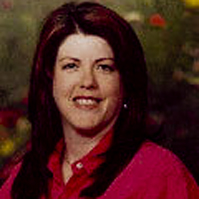This chapter traces the pedagogical and theoretical development of Writing with Video, a new advanced composition course at the University of Illinois at Urbana-Champaign. Throughout this discussion, the authors seek to underscore the importance of the institutional and infrastructural partnerships that were created between the Department of Art and Design and the Center for Writing Studies in realizing the Writing with Video initiative. While much of the scholarship on teaching composition with new media focuses on specific pedagogical implementations, the authors believe that this chapter introduces a new direction in the discussion—the necessity of forging interdisciplinary relationships with colleagues who have an expertise in the visual.
Category: 15) Writing With Video
Bolter, Jay David, & Grusin, Richard. (1999). Remediation: Understanding new media . Cambridge, MA: MIT Press.
Crowley, Sharon. (1998). Composition in the university: Historical and polemical essays . Pittsburgh, PA: University of Pittsburgh Press.
Davis, D. Diane. (2001). Finitude’s clamor: Or, notes toward a communitarian literacy. College Composition and Communication , 53 (1), 119–145.
DeVoss, Dànielle; Cushman, Ellen; & Grabill, Jeffrey T. (2005). Infrastructure and composing: The when new-media writing. College Composition and Communication, 57 (1), 14–44.
George, Diana. (2002). From analysis to design: Visual communication in the teaching of writing. College Composition and Communication, 54 (1), 11–39.
Hocks, Mary E. (2003). Understanding visual rhetoric in digital writing environments. College Composition and Communication, 54 (4), 629–656.
Johnson-Eilola, Johndan. (2005). Datacloud: Toward a new theory of online work . Cresskill, NJ: Hampton Press.
Kent, Thomas (Ed.). (1999). Post-process theory: Beyond the writing-process paradigm . Carbondale: Southern Illinois University Press.
Lancaster, Amber. (2006, May 26). Video media and technical communication and rhetoric programs . Paper presented at the Computers and Writing Conference, Texas Tech University, Lubbock.
Lanham, Richard. (1993). The electronic word: Democracy, technology, and the arts . Chicago: University of Chicago Press.
Lunsford, Andrea. (2006). Writing, technologies, and the fifth canon. Computers and Composition, 23 (2), 169–177.
Manovich, Lev. (2001). The language of new media . Cambridge, MA: MIT Press.
McCullough, Malcolm. (2004). Digital ground: Architecture, pervasive computing, and environmental knowing . Cambridge, MA: MIT Press.
Monaghan, Peter. (2006, July 14). More than words. The Chronicle of Higher Education , p. A33.
National Council of Teachers of English. (2003). Resolution on composing with nonprint media. Retrieved November 11, 2007, from http://www.ncte.org/about/over/positions/category/comp/114919.htm
(Alternate location for article:
http://www.ncte.org/positions/statements/composewithnonprint
)
Purdy, James P., & Walker, Joyce R. (2007). Digital breadcrumbs: Case studies of online research. Kairos: Rhetoric, Technology, and Pedagogy, 11 (2). Retrieved November 11, 2007, from http://kairos.technorhetoric.net/11.2/binder.html?topoi/purdy-walker/index.htm
Spinuzzi, Clay. (2001). “ Light green doesn’t mean hydrology! ”: Toward a visual-rhetorical framework for interface design. Computers and Composition, 18 , 39–53.
Trimbur, John. (1994). Taking the social turn: Teaching writing post-process. College Composition and Communication, 45 (1), 108–118.
Westbrook, Steve. (2006). Visual rhetoric in a culture of fear: Impediments to multimedia production. College English , 68(5), 457–480.
Wooten, Judith A. (Jay). (2006). 2006 chair’s address: Riding a one-eyed horse: Reining in and fencing out. College Composition and Communication, 58 (2), 236–245.
Wysocki, Anne Frances. (2004). Opening new media to writing: Openings and justifications. In Anne Frances Wysocki, Johndan Johnson-Eilola, Cynthia L. Selfe, & Geoffrey Sirc, Writing new media: Theory and applications for expanding the teaching of composition (pp. 1–41). Logan: Utah State University Press.


